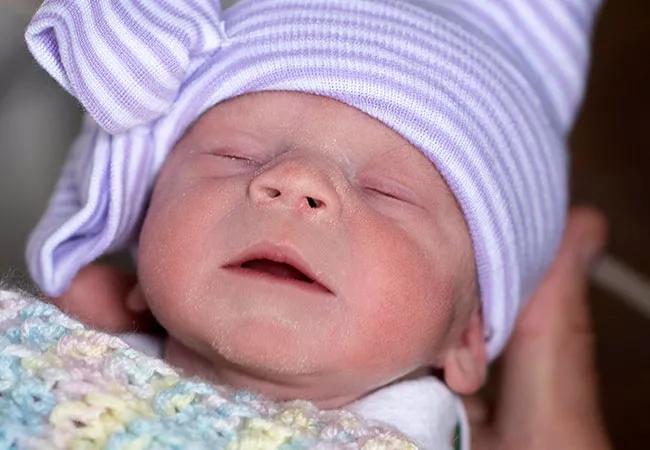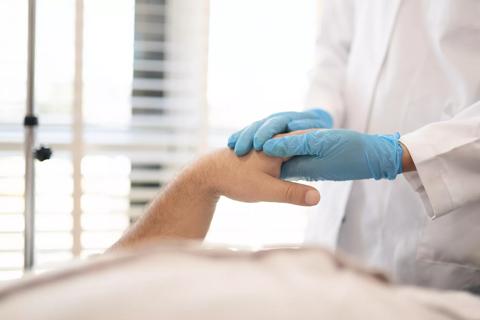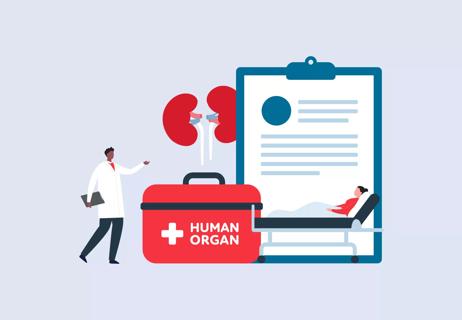Clinical trial targets women with UFI

A baby girl born last month at Cleveland Clinic made history. She was the first baby in North America delivered by a mother who received a uterus transplant from a deceased donor.
Advertisement
Cleveland Clinic is a non-profit academic medical center. Advertising on our site helps support our mission. We do not endorse non-Cleveland Clinic products or services. Policy
You’re probably familiar with the idea of a kidney, liver or heart transplant, but uterine transplant is a rapidly evolving field, says maternal-fetal medicine specialist Uma Perni, MD, who was part of the mother’s care team.
“It’s important to remember that this is still research, but it’s exciting to see what the options may be for women in the future,” she says.
The mother, who is in her mid-30s, is part of a groundbreaking research trial involving 10 women with uterine factor infertility (UFI). Women who have UFI don’t have a uterus, or had their uterus removed, so they aren’t able to get pregnant. The study is testing whether receiving a uterus transplant from a deceased donor could allow these women to become pregnant (via in-vitro fertilization) and carry and deliver a baby.
This clinical trial reflects the Cleveland Clinic tradition of innovation in clinical medicine. Unlike some other uterus transplant programs, Cleveland Clinic’s trial uses only uteruses from donors who have recently died. This eliminates the risk of potentially harming a living donor, who would need to have major abdominal surgery to have her uterus removed.
“The transplantation of a uterus into a woman is a complex procedure that requires suppression of her immune system response,” says transplant surgeon Andreas Tzakis, MD. “Through this research, we aim to make these extraordinary events ordinary for the women who choose this option. We are grateful to the donor. Their generosity allowed our patient’s dream to come true and a new baby to be born.”
Advertisement
Since the trial began, the team has completed five uterus transplants, three of which were successful (including this one, which resulted in a live birth). Currently, two women are waiting to have embryo transfers, and several more candidates are waiting for a transplant.
Take a closer look at how uterus transplant works in the graphic below.
Advertisement
Learn more about our editorial process.
Advertisement

More than 20 organs and tissues can be donated, and one donor can help more than 80 people

Rest, hydration, protein and light exercise all play an important role in your healing

Healthy gut flora defeat Clostridium difficile infection

Ob/Gyns and midwives both care for your gynecological and pregnancy needs — which you choose depends on your health and comfort

Placenta consumption hasn’t been shown to have any health benefits, but it can cause infections

It’s common to have a bowel movement when you’re giving birth, but your care team truly doesn’t want you to be embarrassed by it

Epidurals can help with the discomforts of labor and delivery — but whether you want one is entirely your choice

Baby’s caregivers should be up-to-date on flu, COVID-19 and Tdap vaccines to protect the newborn in their lives

Babies can get congested easily, but you can calm their cough by keeping them hydrated, using nasal drops and running a humidifier

Weight loss may cause loose, sagging skin and muscle loss to your rear

Several conditions, like vitiligo and fungal infection, can cause a loss of pigmentation, leading to white spots or patches on your skin